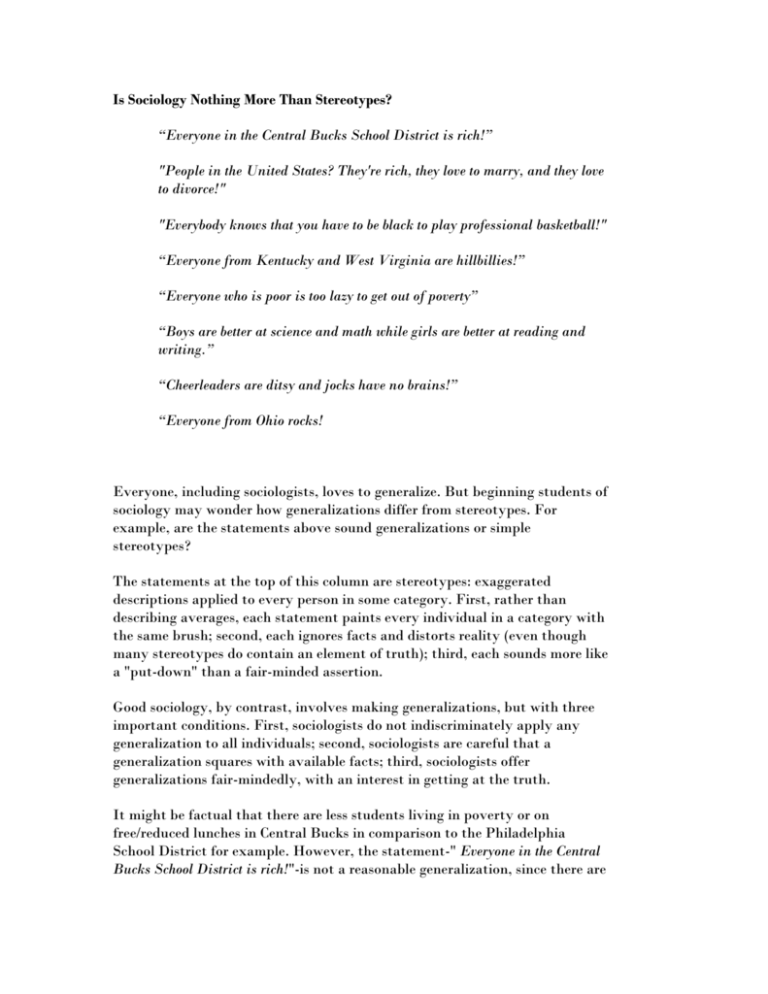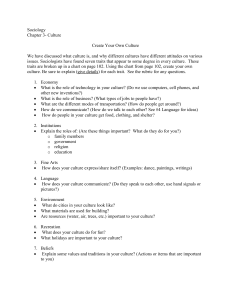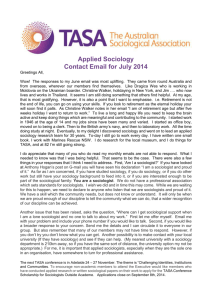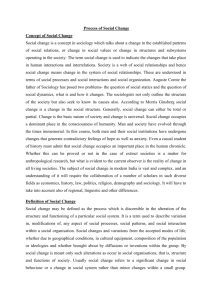Sociology: Stereotypes vs. Generalizations Explained
advertisement

Is Sociology Nothing More Than Stereotypes? “Everyone in the Central Bucks School District is rich!” "People in the United States? They're rich, they love to marry, and they love to divorce!" "Everybody knows that you have to be black to play professional basketball!" “Everyone from Kentucky and West Virginia are hillbillies!” “Everyone who is poor is too lazy to get out of poverty” “Boys are better at science and math while girls are better at reading and writing.” “Cheerleaders are ditsy and jocks have no brains!” “Everyone from Ohio rocks! Everyone, including sociologists, loves to generalize. But beginning students of sociology may wonder how generalizations differ from stereotypes. For example, are the statements above sound generalizations or simple stereotypes? The statements at the top of this column are stereotypes: exaggerated descriptions applied to every person in some category. First, rather than describing averages, each statement paints every individual in a category with the same brush; second, each ignores facts and distorts reality (even though many stereotypes do contain an element of truth); third, each sounds more like a "put-down" than a fair-minded assertion. Good sociology, by contrast, involves making generalizations, but with three important conditions. First, sociologists do not indiscriminately apply any generalization to all individuals; second, sociologists are careful that a generalization squares with available facts; third, sociologists offer generalizations fair-mindedly, with an interest in getting at the truth. It might be factual that there are less students living in poverty or on free/reduced lunches in Central Bucks in comparison to the Philadelphia School District for example. However, the statement-" Everyone in the Central Bucks School District is rich!"-is not a reasonable generalization, since there are students within our district who come from varying socio-economic backgrounds. Second, sociologists shape their generalizations to available facts. A more factual version of the second statement is that, on average and by world standards, the U.S. population has a very high standard of living. It is also true that our marriage rate is one of the highest in the world. And, although few people take pleasure in divorcing, so is our divorce rate. Third, sociologists strive to be fair-minded; that is, they are motivated by a passion for truth. The third statement about African Americans and basketball is not good sociology for two reasons. First, it is simply not true, and, second, it seems motivated by bias rather than truth-seeking. Good sociology, then, stands apart from harmful stereotyping. But a sociology course is an excellent setting for talking over common stereotypes. The classroom encourages discussion and offers the factual information you need to decide whether a particular assertion is valid or just a stereotype. Continue the debate . . . 1. Do you think that taking a sociology course may dispel people's stereotypes? Why or why not? 2. Can you cite a stereotype of your own that you might like to address within this course? 3. How do stereotypes relate back to the sociological imagination? (Personal vs. public issues)






